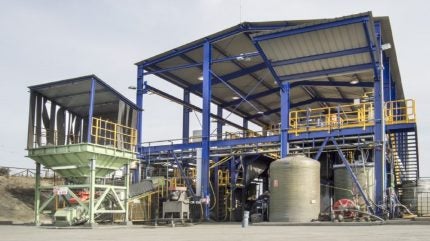
Spanish mining company CLC has unveiled plans to trial new technologies for the extraction of critical metals from mine waste.
These technologies are designed to recover metals such as cobalt, tungsten, gold and silver.
This initiative is part of the EU-funded RAWMINA project, which focuses on providing critical raw materials necessary for renewable energy development and energy storage systems, including electric vehicle batteries.
One of the methods is bioleaching, a process that utilises microorganisms to extract metals from rocks.
CLC noted that bioleaching has several advantages compared with traditional metallurgical processes. These advantages include reduced energy and chemical usage, lower capital and operational costs as well as reduced CO₂ emissions.
The company’s pilot plant, constructed in 2016, for its polymetallic refinery project will serve as the testing ground for this technology.
CLC stated that extraction of raw materials from mine waste is not only pivotal for the energy transition but also aims to diminish Europe’s reliance on external markets such as China.
The RAWMINA project, which began in 2021, is now progressing into its final phase. It includes a consortium of 19 specialist partners from ten nations.
As one of the most proactive Andalusian entities in Horizon 2020 programmes, CLC’s involvement in the RAWMINA project complements its participation in other research and development initiatives.
These include the METALLICO consortium, which is developing new methods to procure strategic metals for battery production, and the University Innovation Center of Andalusia, Alentejo and Algarve, where CLC is researching the use of metals from the Andalusian Pyritic Belt for next-generation battery manufacturing.
Furthermore, CLC is a member of the European Raw Materials Alliance, which is committed to securing the supply of essential metals for European industries.
CLC innovation and environment director Joaquín Gotor said: “With this project, we will be able to add new metals to our production portfolio using circular economy principles, contributing to the green transition of greater environmental sustainability.”



